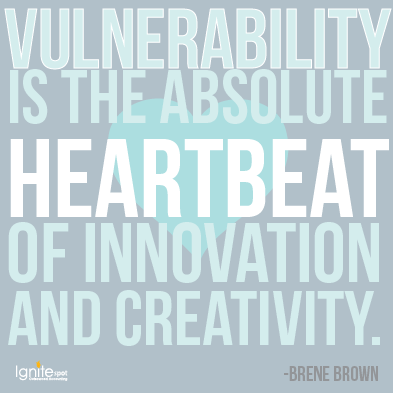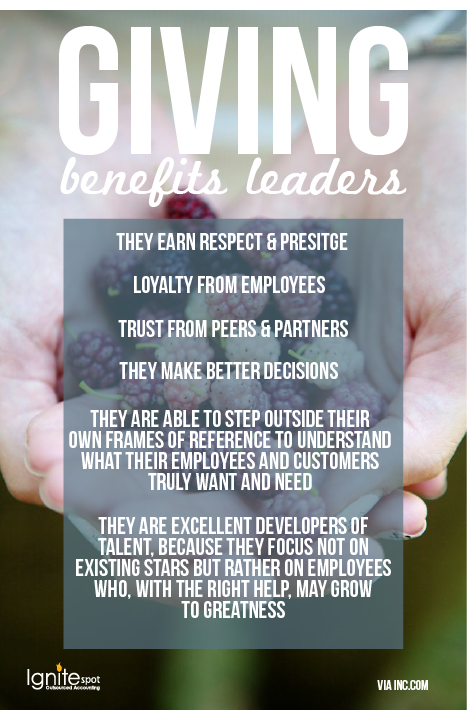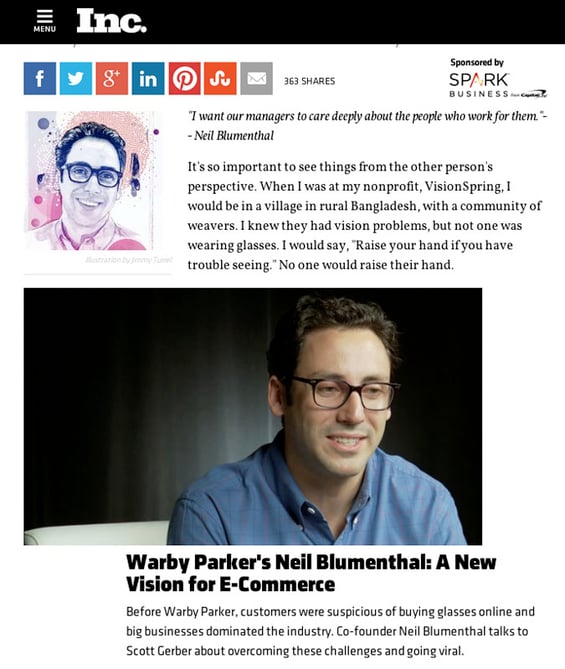
Our ideas about leadership are changing rapidly. In the Internet age it is easy to learn just about everything about anyone. There's really nowhere to hide.
Employees and customers expect leaders to have more altruistic and authentic character traits. People are becoming more interested in the Bill & Melinda Gates Foundation rather than in Microsoft. It's hard not to admire all the good they are doing--nevermind that software that keeps giving us headaches.
Qualities of leadership were once-upon-a-time based solely on power, persuasion and politics. But now, people are smarter, and they're looking for people with heart and generosity to follow. Goodbye, Donald Trump. Hello, Melinda Gates.
So what are the new innovative qualities of leadership? We'll show you 11 that will ultimately make your business successful and profitable.
1. Aware
This is probably the most important, yet most difficult quality to develop. There's not a standard equation that will help you become self-aware or of what is going on around you. Awareness is something that only comes through experience and a willingness to be present.
Karen Cates of Bloomberg Businessweek says,
What we fail to emphasize in business school and in corporate mentorship programs is the importance of developing softer skills—an “awareness” of yourself and the people around you that helps you leverage previously untapped personal qualities.

You have to have the self-discipline to look away from spreadsheets, statistics, bank accounts, etc. in order to see what is really going on within your business--especially concerning your relationships with employees. Perhaps performance is suffering because you're not the most patient leader around, and everyone is on edge. The last thing you want to do is to continue to "show them who's boss."
Always start with an awareness of yourself. What are your weaknesses and strengths? If you're not naturally an insightful person, you might want to ask employees, friends, and family. Get ready for brutal honesty. Because brutal honesty is the best schooling you can get when it comes to leadership training.
2. Filtered
We all know that good communication and listening are essential qualities for business leaders. However, make sure that you don't overdo it.
Greg McKeown recounted his experience as an employee who listened too much to a critical boss. Eventually, he started to believe that he wasn't a great writer or a grateful person. His wife brought him back to reality when she urged him to "consider the source."
As a leader, you want that brutal honesty, but remember to consider the source, and you might want to get second and third opinions before you start beating yourself up.
On the other hand, your communication might go too far, and you might actually be hurting employees' morale if you think your honesty is helping--sometimes honesty can simply be indulgent. Be careful with your words and your tone.
3. Interdependent

Do-It-Yourself might be all the rage in the home remodeling and crafting world, but this is no way to run a business anymore. Running a business is about inclusiveness--even with your competitors sometimes. Leaders need to use both external and internal talent to reach a wider audience in a way that is creative, useful, and profitable.
Leigh Buchanan observed that true leaders have companies that
co-create with customers and vendors; they enlist their entire supply chains--sometimes even competitors--in risk management.
She also argues that
CEOs still bear ultimate responsibility for difficult decisions. But it's less lonely at the top with so many constituencies staking claims to be heard and respected. Under those circumstances, collaboration and flexibility are essential.
Profitable leaders rely on the expertise and insight of others, both internally and externally. Stop the DIY approach, and get help.
4. Vulnerable
It's not weakness. Being vulnerable makes you a real person that is approachable. In fact, showing and encourgaging vulnerability will actually increase innovation and creativity because you will make it ok and even necessary to fail. Vulnerability removes the fear of failing. If you're a vulnerable leader you'll see that your employees will take the risks that really pay off, and they'll feel supported as they fail and eventually succeed.
Vulnerability is the combination of uncertainty, risk, and emotional exposure.
Welcome to entrepreneurship.

5. Humble
You don't have all the answers. You shouldn't even try to look like you have all the answers. Stop it.
Guess who has a lot of great ideas? Ya, all those people you hired. Here's a few questions you should be asking on a regular basis:
- Can you help me with this?
- What are your thoughts on this issue?
- Are you willing to work on this together with me?
Humility is approachable. People speak up. They share their ideas. Innovation is what will make your business profitable. So get off your high horse. Thanks.
6. Giving
The most professionally successful are givers who also possess a strong sense of self-worth.
Wharton professor Adam Grant is shattering the myth that only the self-interested are successful in the business world. Times, they are a-changing. And thank goodness! We think it's pretty rad that companies and leaders that are the most giving are the most profitable--and, remember, that we see profitability as something that extends beyond just money. Like the founder of the Body Shop, Anita Roddick, said
The bottom line should stay at the bottom.
Need more reasons to be a giver other than it just feels good? Ok, here's some of our faves:

Ambitious givers embody connectedness.
Start giving. Now would be a good time.
7. Democratic
There are more and more organizations that see how profitable it is for their business to advocate and nurture freedom, accountability and transparency.
Democratic businesses tend to be more financially successful and have greater social impact than their bureaucratic counterparts. People want to have their voices heard. When you give them that and respect what they have to say, they are more engaged, and that makes them more productive.
Millennials have been in the workforce for about a decade now, and they aren't looking for the same perks their parents were looking for. According to Sarah Horowitz, they want "meaningful independence."
They see themselves as having power to make choices.
Remember all that stuff about communication and listening? Well, listening happens first, and many of your up-and-coming employees expect to be heard--and it turns out you'd be smart to listen in a real way so that they feel they have a part in the dialog.
8. Purposeful
It's not just millennials here. Most employees need to know not just where or how to work, but they want to know what they are working for. It's much easier for people to be engaged in something they believe is making a difference in the world.

Read more about why it's important for leaders to have purpose here.
9. Unconventional
In addition to looking for purpose in their work, millennials, and many others, value time over money. They want more time in their lives for family, friends, communities, and creative passions.
As a leader you'll need to start thinking oustide of the box--especially outside of the 9 to 5 box. Flexibility is key. More and more research shows that employees are more productive when they feel they have some control over their schedule, and they're more likely to perform and deliver on time because they want to keep the privilege of a flex schedule.
Starting a flex privilege with your employees is a little like starting a new diet. At first you have to make serious efforts to revamp your entire kitchen and pantry. But once you've crossed that hurdle, your new eating lifestyle becomes the new norm.
You might be uncomfortable changing things up a bit, but it's not only worth it--it's necessary.
10. Empathetic
I want our managers to care deeply about the people who work for them. - Neil Blumenthal, Warby Parker
It's not just enough to care deeply for the people who work for you--you have to let them know that you care. Watch this great clip on Inc.com with one of Warby Parker's founders about why empathy matters.

11. No Sweat
Whitney Johnson recently wrote an insightful blog post on the Harvard Business Review blog where she talks about how leaders need to stop trying so hard to lead. She writes about her new approach to delivering a speech as she tries to get real:
Rather than rushing headlong through my remarks, concerned that I would lose my place, I was able to rein in my fear, stop narcissistically worrying what others would think of me, and slow my pace. As I listened to and felt the audience, my speech became a dialogue, rather than a monologue. This interplay with the audience moved from laughter to sighs to tears – an animated conversation that felt as natural as breathing. For the first time in my life, I put aside the classical musician I was trained to be, and became the jazz musician I longed to be, an improvised connection flowing between the audience and me.
Often, as leaders, you are hyper-aware that everyone is looking to you for inspiration and direction. Unfortunately, it's easy to turn on auto-pilot and trust too much in templates, checklists or methodologies you're still holding on to from way back in b-school.
Stop trying so hard to lead. If let yourself be the natural awesome, caring, creative, hustling leader that you are, then just relax and embody the present moment.

Today's leaders aren't your average leaders. They dare to sacrifice power to do what is helpful for the community. Today's leaders are concerned about everyone's well-being, and try to make a difference on every level.
References:
(2013 June) Buchanan, Leigh. Between Venus and Mars: 7 Traits of Ture Leaders. Inc.com. Retrieved July 29, 2014 from http://www.inc.com/magazine/201306/leigh-buchanan/traits-of-true-leaders.html
(2014, July 24) Horowitz, Sara. 94% of Milliennials Want to Use Their Skills For Good. Medium.com. Retrieved July 29, 2014 from https://medium.com/@sara_horowitz/badaa9684bc8
(2014, July 24) McKeown, Greg. The Emotional Boundaries You Need At Work. HBR Blog Network. Retrieved July 29, 2014 from http://blogs.hbr.org/2014/07/the-emotional-boundaries-you-need-at-work/
(2014, July 16) Johnson, Whitney. Lead Without Trying So Hard. HBR Blog Network. Retrieved July 29. 2014 from http://blogs.hbr.org/2014/07/lead-without-trying-so-hard/
Brown, Brene. 4 Powerful Things Leaders Should Know About Vulnerability. Inc.com. Retrieved July 29, 2014 from http://www.inc.com/kimberly-weisul-and-andrew-maclean/dr-brene-brown-vulnerability-leadership.html
(2014 June 12) Cates, Karen. To Become a Better Leader, Be Aware. Bloomberg Businessweek. Retrieved July 29, 2014 from http://www.businessweek.com/articles/2014-06-12/to-become-a-better-leader-be-aware













.png)




.png?width=160&height=160&name=Gold%20(1).png)
